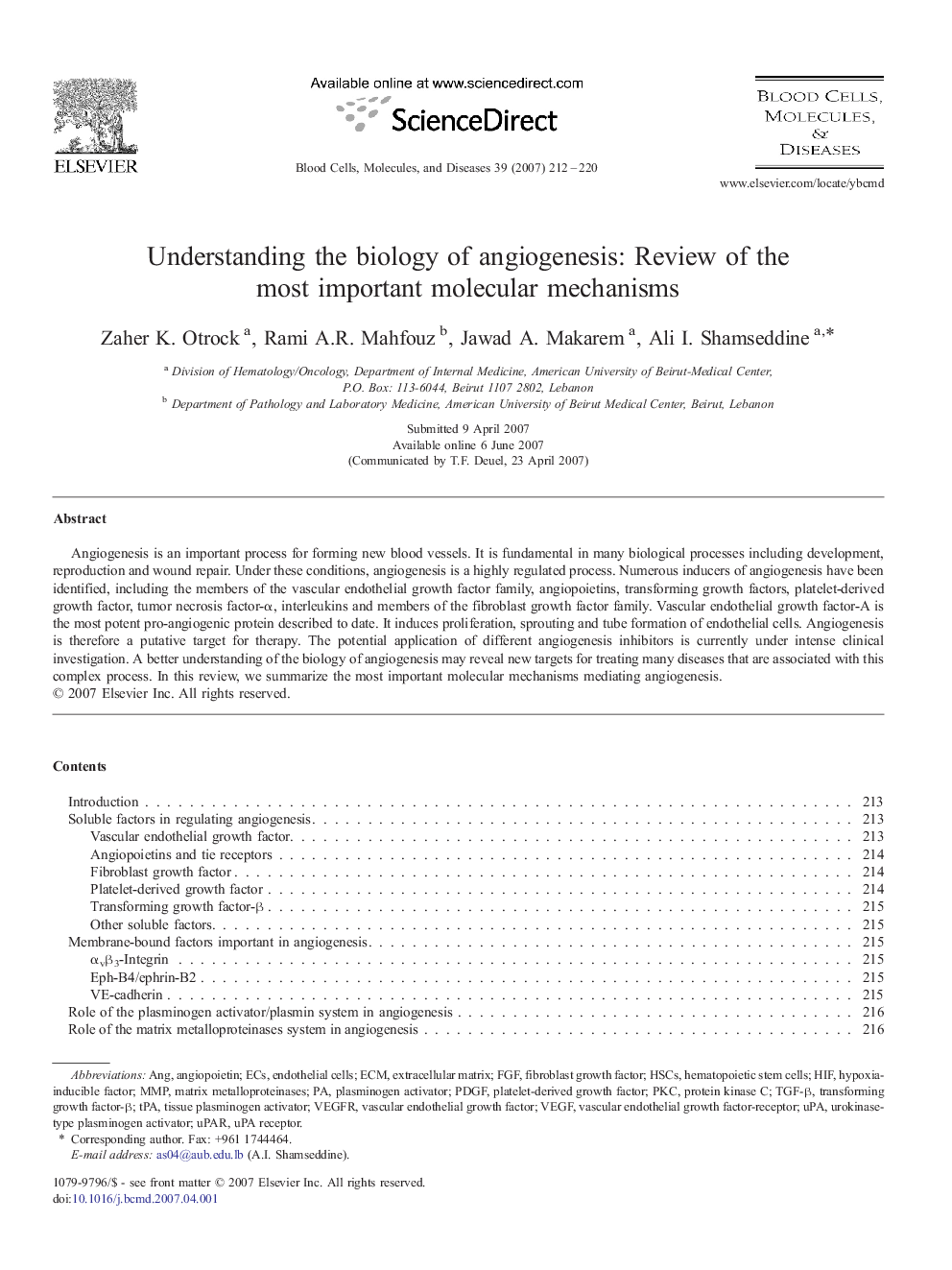| Article ID | Journal | Published Year | Pages | File Type |
|---|---|---|---|---|
| 2828118 | Blood Cells, Molecules, and Diseases | 2007 | 9 Pages |
Angiogenesis is an important process for forming new blood vessels. It is fundamental in many biological processes including development, reproduction and wound repair. Under these conditions, angiogenesis is a highly regulated process. Numerous inducers of angiogenesis have been identified, including the members of the vascular endothelial growth factor family, angiopoietins, transforming growth factors, platelet-derived growth factor, tumor necrosis factor-α, interleukins and members of the fibroblast growth factor family. Vascular endothelial growth factor-A is the most potent pro-angiogenic protein described to date. It induces proliferation, sprouting and tube formation of endothelial cells. Angiogenesis is therefore a putative target for therapy. The potential application of different angiogenesis inhibitors is currently under intense clinical investigation. A better understanding of the biology of angiogenesis may reveal new targets for treating many diseases that are associated with this complex process. In this review, we summarize the most important molecular mechanisms mediating angiogenesis.
